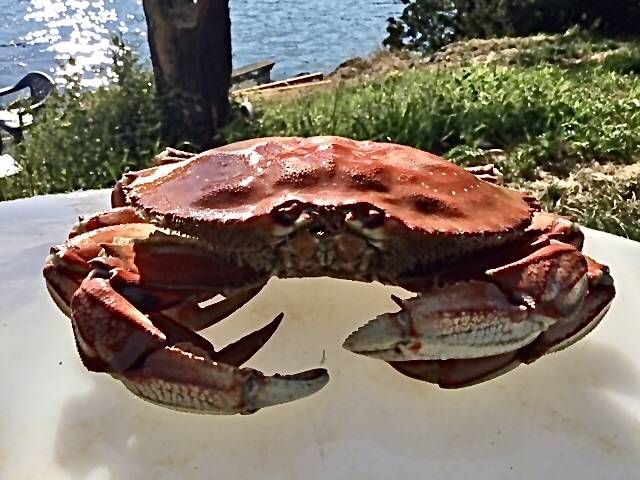Rumors about crab pot thieves and pinched Dungeness almost swirl faster than the currents through Deception Pass. But according to two locals who have pulled many a seemingly lost pot from the water, those fears may be unfounded.
Ralph Downes, an enforcement officer for the state Department of Fish and Wildlife, said that the agency has removed more than 250 recreational crab pots from marine areas 8-1 and 8-2 since the season opened two weeks ago.
Both areas are popular spots for crabbing inside of Deception Pass and along the east side of Whidbey to the southern tip.
Crabbers can set pots Thursday-Monday and must pick them up before dark on Monday. WDFW crews have swept each marine area one day per week for left-behind gear.
Some pots were likely left because of weather, mechanical or other issues, Downes explained, but a lot of them are probably from people who think they fell victim to crab-snatchers.
Officials have written citations for over-fishing and other violations but nothing has warranted the seizure of a boat, according to Downes.
Jetboat Capt. Brett Ginther of Deception Pass Tours said his crew typically rescues 50 lost pots per year.
Ginther said most are returned to their rightful owners because they have a phone number written on the buoy.
“They’re all over Deception Pass. It’s constant,” Ginther said of the bobbing red-and-white buoys.
Ginther said a telltale sign of a lost pot is that there is little to no weight added to the bottom. He adds about 25 pounds of weight to his gear and has not had one stolen.
Besides being out an average of $50 per pot, derelict or abandoned gear presents a bigger problem. Lost and derelict crab pots kill over 177,000 harvestable crabs each year in the Salish Sea alone, according to the Northwest Straits Foundation. The group has worked with local partners to remove thousands of lost crab pots since 2002.
Crabbers are required to have a biodegradable “rot cord” on their pots that is supposed to work as an escape hatch if a pot becomes lost with crab inside.
Downes said that although he receives complaints about stolen pots every year, Mother Nature is more likely to blame than a greedy fisherman.
“Unfortunately, most that engage in the recreational crab fishery do so rarely and in a very casual manner,” Downes said. “I’m not saying that either is bad, but when combined with all the other factors, lots of gear is just lost.”
Crab season is open Thursday through Monday until Sept. 6 in marina areas 8-1 and 8-2.
To report lost fishing gear, go to wdfw.wa.gov/fishing/shellfishing-regulations/gear-rules/lost-gear. Staff will attempt to contact those who report missing gear if they are able to find it and it’s properly identified.



